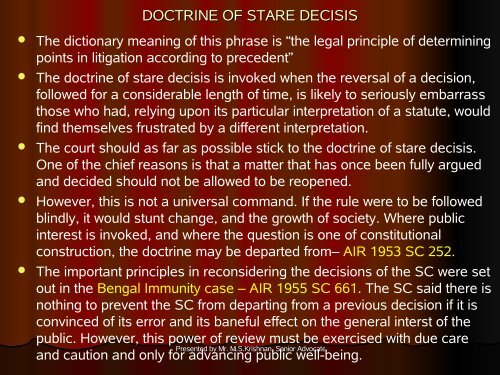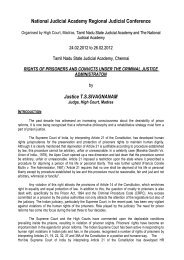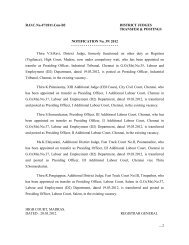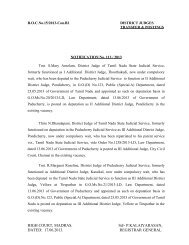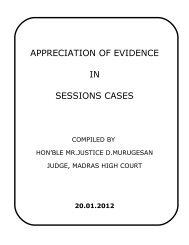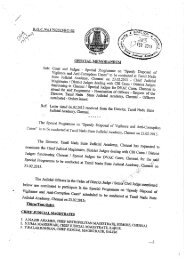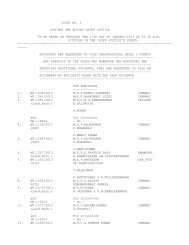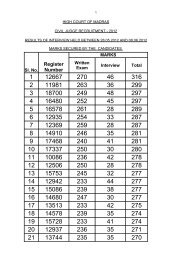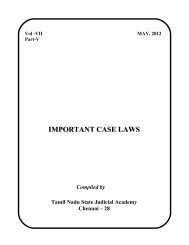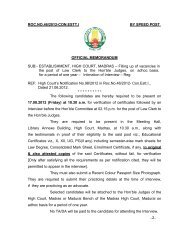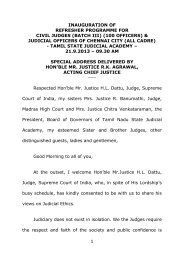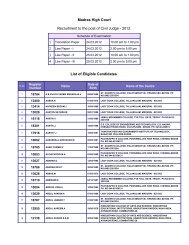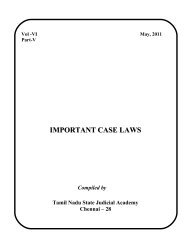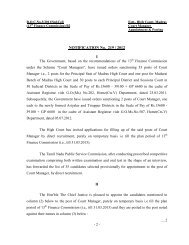LAW OF PRECEDENTS - Madras High Court
LAW OF PRECEDENTS - Madras High Court
LAW OF PRECEDENTS - Madras High Court
Create successful ePaper yourself
Turn your PDF publications into a flip-book with our unique Google optimized e-Paper software.
DOCTRINE <strong>OF</strong> STARE DECISIS<br />
The dictionary meaning of this phrase is “the legal principle of determining<br />
points in litigation according to precedent”<br />
The doctrine of stare decisis is invoked when the reversal of a decision,<br />
followed for a considerable length of time, is likely to seriously embarrass<br />
those who had, relying upon its particular interpretation of a statute, would<br />
find themselves frustrated by a different interpretation.<br />
The court should as far as possible stick to the doctrine of stare decisis.<br />
One of the chief reasons is that a matter that has once been fully argued<br />
and decided should not be allowed to be reopened.<br />
However, this is not a universal command. If the rule were to be followed<br />
blindly, it would stunt change, and the growth of society. Where public<br />
interest is invoked, and where the question is one of constitutional<br />
construction, the doctrine may be departed from– AIR 1953 SC 252.<br />
The important principles in reconsidering the decisions of the SC were set<br />
out in the Bengal Immunity case – AIR 1955 SC 661. The SC said there is<br />
nothing to prevent the SC from departing from a previous decision if it is<br />
convinced of its error and its baneful effect on the general interst of the<br />
public. However, this power of review must be exercised with due care<br />
Presented by Mr. M.S.Krishnan, Senior Advocate<br />
and caution and only for advancing public well-being.


